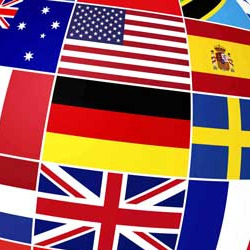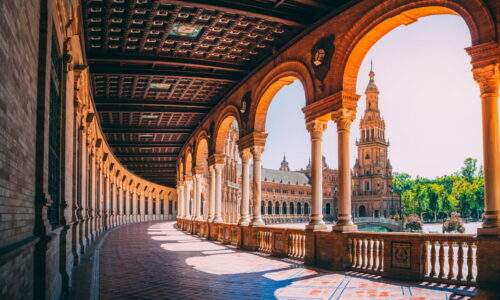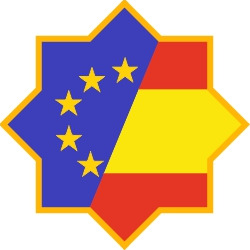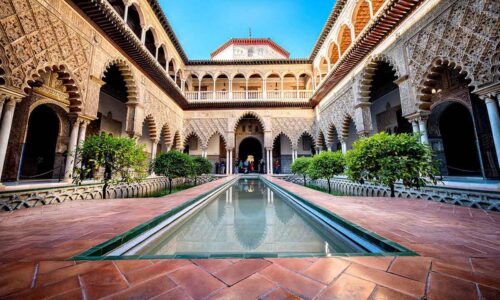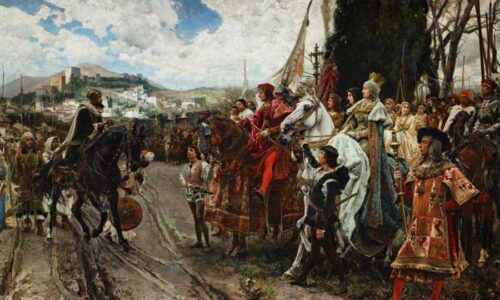1 Week Course in Vélez-Málaga, Spain.
Erasmus+ Introduction to Spanish language and culture Course
Course Description:
Erasmus+ Spanish & Spanish culture course in Spain. With more than 500 million native speakers and 22 million students around the globe, Spanish is today the second international language in the world. A key to exploring a universe of great business opportunities in more than 20 countries where it is the official language, as well as the passport to an enormous cultural universe of possibilities for traveling, learning, tourism, and full enjoyment.
Spain is culturally a very rich and diverse country with different languages, folks, music, dances, gastronomy, festivals, and traditions. There are 17 different regions in Spain with different special cultures, if you are thinking about Flamenco, the Alhambra, or the beaches of Costa del Sol you are thinking of Andalusia, if you dream with the Celtic culture, legends you must visit Galicia, Asturias or Cantabria. If you want to live in the places that inspired Don Quixote then you may want to travel to La Mancha, international cities like Madrid, Málaga or Barcelona, the flavor of Africa in Ceuta or Melilla, the international non-stop parties of Ibiza in Balearic islands or the tropical paradise of Canary islands.
Methods: Digital explanation, Storytelling, Project-Based Learning, and Socratic dialogue.
Activities: Local excursion included.
Concepts:
- Introduction to the Spanish language.
- Spanish History and Hispanic civilization.
- False topics about Spain, Spanish history, and the Hispanic world.
- America and Spain: the first globalization.
- Social and cultural patterns.
- Festivals and traditions.
Objectives:
- Generate a practical working use of the Spanish language.
- Know the main traces of Spanish history and the Hispanic world.
- Discover the Hispanic world and its rich culture.
- Avoid the false historical myths and stereotypes about Spain or Hispanic culture.
- Analyze the richness of Spanish cultural heritage.
- Enjoy Spanish music, dance, folklore, traditions, and the main festival of Spain.
This course combines Spanish language culture instruction with cultural activities designed to provide a comprehensive understanding of Spain’s culture and language. Whether you’re interested in the passion of Flamenco, the history of Al-Andalus, or the culinary delights of Spain, this program will immerse you in a world of traditions, art, spanish language and culture courses
Spain’s 17 distinct regions each boast unique customs and traditions. From the Flamenco dances of Andalusia to the Celtic legends of Galicia, Asturias, and Cantabria, and from the iconic windmills of La Mancha to the cosmopolitan vibes of Madrid and Barcelona, this course celebrates the diversity of Spanish culture language. You’ll also discover Ceuta and Melilla’s African influences, Ibiza’s nonstop festivals, and the tropical charm of the Canary Islands.
Teaching Methods
Our teaching approach ensures you experience Spanish and culture in an engaging and meaningful way:
- Digital Explanation: Interactive digital tools to introduce key concepts.
- Storytelling: Connecting historical events with cultural traditions.
- Project-Based Learning: Hands-on projects to deepen understanding.
- Socratic Dialogue: Guided discussions to foster critical thinking and cultural awareness.
Activities
The program features excursions that offer firsthand experiences of Spanish culture and language in Vélez-Málaga, including:
- Visits to historical landmarks and cultural sites.
- Workshops on Spanish culture flags, gastronomy, and music.
- Interactive sessions focusing on festivals, traditions, and regional diversity.
Key Concepts Covered
- Introduction to the Spanish Language: Practical foundations for communication.
- Spanish History and Hispanic Civilization: Key milestones that shaped Spain and the Hispanic world.
- America and Spain – The First Globalization: Spain’s role in shaping the modern world.
- Social and Cultural Patterns: Understanding the norms and values that define Spanish language culture.
- Festivals and Traditions: Exploring Spain’s most iconic cultural events.
- Debunking Stereotypes: Addressing myths about Spain and Hispanic culture.
Learning Objectives
By the end of the course, participants will:
- Develop a practical working knowledge of Spanish culture and language.
- Understand the major historical and cultural milestones of Spain.
- Explore the richness of Spanish courses with cultural immersion to enhance learning.
- Discover and appreciate the diversity of Spanish culture language in Spain’s regions.
- Participate actively in cultural activities, including music, dance, and gastronomy.
- Identify and challenge stereotypes about Spanish culture flags and history.
Who Should Attend?
This program is tailored for:
- Teachers and educators participating in the Erasmus+ program.
- Students and professionals eager to learn Spanish culture in an immersive environment.
- Cultural enthusiasts looking for spain language and culture with cultural activities.
- Anyone passionate about exploring Spain culture language and its traditions.
Why Choose This Course?
This is not just a Spanish culture class—it’s a deep dive into culture, offering:
- Cultural immersion activities that bring language learning to life.
- Insights into Spain’s national language and its role in global communication.
- Practical applications for personal, educational, and professional development.
How to Enroll
Contact the European Erasmus School for more details and assistance with registration. Erasmus+ funding is available for eligible participants.
